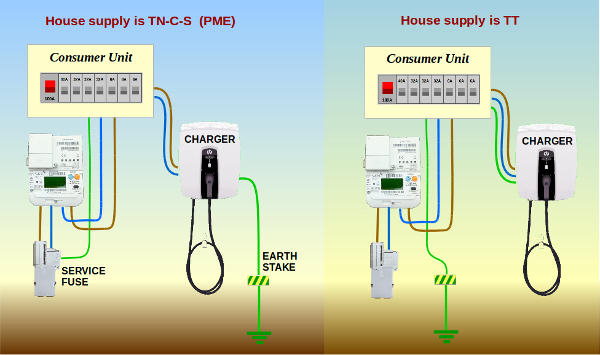Thinking about going electric? Awesome choice! One of the first things you’ll want is a charging station at home. It makes life so much easier. Imagine never worrying about finding a charger again. Plus, it’s a great way to save money in the long run.
What Is an Electric Vehicle Charging Station?
So, what exactly is an EV charging station? It’s a spot where you plug in your electric car to recharge. There are different types, too. From slow chargers to fast ones, you have options! Installing one at home means you can charge whenever you want. Whether you drive a hybrid or a fully electric vehicle, a home station is a game-changer.
Why Install an Electric Vehicle Charger at Home?
You might be wondering why it’s worth it to install a charger at home. Here’s the scoop:
- Convenience: No more hunting for public chargers. Just plug in your car when you get home!
- Cost Savings: Charging at home usually costs less than using public stations. Plus, you can save even more during off-peak hours.
- Time Efficiency: Plug in overnight and start your day with a full battery. No waiting around at charging stations!
- Increased Property Value: Homes with EV chargers can attract future buyers. It’s a selling point!
Benefits of Electric Vehicle Charger Installation
Still unsure about installing a charger? Here’s why it’s a smart move:
- Flexibility: You can pick from different charging speeds. It all depends on your needs and your car.
- Enhanced Lifestyle: Enjoy the freedom of electric driving. You won’t stress over finding a charging station anymore.
- Sustainability: Using renewable energy to charge your vehicle is a win for the planet!
- Easy Integration: Some chargers connect to smart home systems. This makes managing energy use super simple.
Types of Electric Vehicle Chargers
When it comes to chargers, there’s no one-size-fits-all. Here’s a quick breakdown:
- Level 1 Chargers: These are the basic ones. They plug into a regular outlet but take longer to charge.
- Level 2 Chargers: A popular choice! They charge faster and are perfect for home use with a 240-volt outlet.
- DC Fast Chargers: The speed demons of the bunch! They charge your car quickly but usually need special installation.
How to Set Up Your Electric Vehicle Charging Station
Setting up a charging station is pretty straightforward. Follow these simple steps:
- Assess Your Electrical Capacity: Check if your home’s electrical system can handle the new charger.
- Choose the Right Location: Find a spot where you park. Make sure it’s convenient!
- Select Your Charger: Decide what type of charger fits your needs and budget.
- Hire a Professional: Get a licensed electrician to handle the installation. It’s safer that way!
- Test Your Charger: Once it’s installed, give it a test run. Make sure everything’s working smoothly.
Things to Consider When Installing an Electric Vehicle Charger
Before you dive into installation, keep these tips in mind:
- Home Layout: Look at your garage or parking area. Ensure there’s enough space for the charger and your vehicle.
- Cost: Think about the charger’s price and installation fees. Costs can vary quite a bit!
- Permits: Check with local regulations to see if you need a permit for installation. Better safe than sorry!
Finding Electric Vehicle Charger Installation Services in Your Area
Looking for reliable installation services? Start local! Many companies focus on EV charger installation. They can help you find the right setup for your home. Don’t forget to ask for quotes and read reviews. It’s smart to choose quality service!
Conclusion
Installing a charger at home is a fantastic way to enhance your EV experience. Whether you go with a Level 1 or Level 2 charger, having your own station is super convenient. You’ll enjoy cost savings and peace of mind. Ready to take the plunge? Setting up your charger is the first step toward hassle-free electric vehicle ownership. With the right installation, you’ll love the freedom of electric driving!
FAQs
What is the difference between Level 1 and Level 2 chargers?
Level 1 chargers use a standard 120-volt outlet and charge your vehicle slowly, typically overnight. Level 2 chargers require a 240-volt outlet and charge much faster, making them ideal for home use.
Do I need a permit to install an electric vehicle charger at home?
It depends on your local regulations. Many areas require a permit for electrical installations, including EV chargers. It’s best to check with your local building department before proceeding.
How much does it cost to install a home charging station?
Installation costs can vary widely based on the type of charger, the complexity of the installation, and local labor rates. On average, you might spend between $500 to $2,000, including the charger and installation.
Can I install a charging station myself?
While it’s possible to install a Level 1 charger yourself, it’s highly recommended to hire a licensed electrician for any Level 2 or DC fast chargers. This ensures the installation meets safety standards and local codes.
Will installing a charging station increase my home’s value?
Yes! Homes with electric vehicle charging stations can be more attractive to potential buyers. As electric vehicle ownership grows, having a charger at home can be a valuable selling point.
